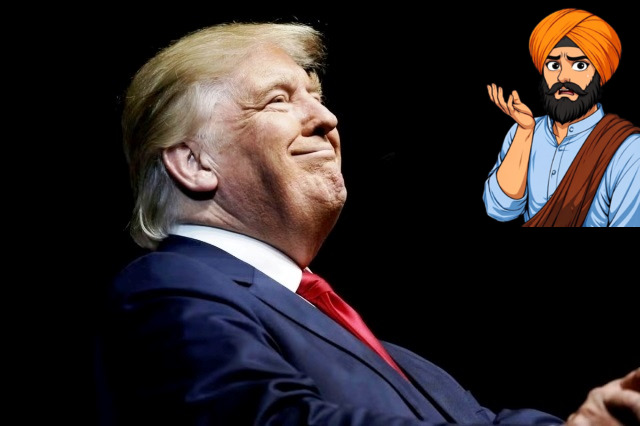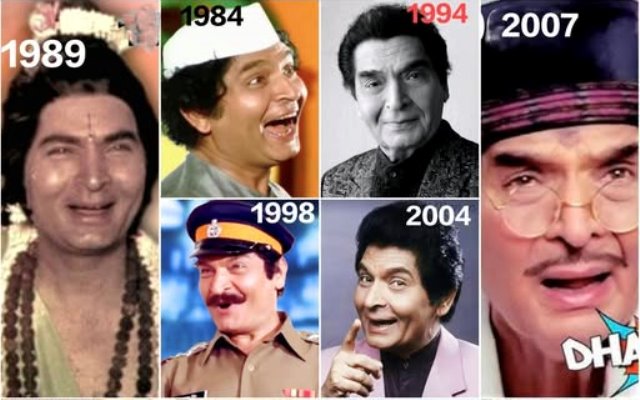
What’s Happening in BJP’s Make Or Break States?
As voters in Maharashtra, the western Indian state that has 48 seats in Lok Sabha, gear up to vote for the 24 seats that remain to be voted for (the rest have already been polled in the first three phases), a noted Indian political writer posted on X this comment by a voter in the state: “Yahan toh poori khichdi bani hui hai.” Khichdi is an Indian dish made of a mix of rice and lentils; metaphorically, it also means a mess.
What the voter was probably referring to was the bewildering situation that voters face in Maharashtra, whose 48 seats can prove to be crucial for Prime Minister Narendra Modi and the Bharatiya Janata Party-led National Democratic Alliance (NDA). In 2019, the BJP and its ally in the state, the Shiv Sena, had won 41 of the 48 seats, and that was a key contribution to the NDA’s total tally of 354 seats in Parliament.
This time, things are complicated. The Shiv Sena itself has split into two factions: one is led by Eknath Shinde, who is the current chief minister of the state, and the other is headed by Uddhav Thackeray, son of the Shiv Sena’s founder, the late Bal Thackeray. Furthermore, another mainly regional party of the state, the Nationalist Congress Party (NCP), founded by the veteran politician Sharad Pawar, has also split and Pawar’s nephew Ajit Pawar now leads his own faction. In pre-election alliance manoeuvres that are typical in Indian politics, the two national parties, BJP and Congress, have also placed their bets in the changed scenario: the BJP has an alliance with the Shinde-led Shiv Sena faction and the Ajit Pawar-led NCP faction; and the Congress has allied with Thackeray’s Shiv Sena faction and the senior Pawar’s faction of the NCP.
The khichdi reference is apt. Voting decisions in a multi-party scenario can as it is be complex; in Maharashtra, the situation after the split of two parties could make them even more puzzling. No one can really say what the outcome of the polls in Maharashtra would be this time. Could the BJP get the 40 plus seats that it would need to notch up a big total tally? Would Modi’s magic neutralise the vote divisions that factionised parties often face? It’s all up in the air.
Other Make Or Break States
Just as who the voters choose in Maharashtra could be a key factor in the results of the elections, there are three other states where the BJP and its allies’ performance would be key to how many seats they end up winning in Parliament.
Karnataka. In the southern state of Karnataka, which has 28 seats, in 2019 the NDA won 26. Yet, although Karnataka is one of the few southern states where the BJP, perceived as a northern, Hindi belt party, has been able to get a foothold, things could be different this time.
Last year, the Congress won the state elections and chief minister Siddaramaiah formed the government. Under him, the state has launched a series of welfare schemes targeted at women, the poor, and the underprivileged. On-the-ground reports suggest that a large section of voters in the state are happy with the state government and that could influence whom they choose in the parliamentary elections.
There are other problems for the BJP. In Karnataka, the BJP is allied with the regional Janata Dal (Secular), headed by veteran politician and former Prime Minister, H D Deve Gowda. Recently, Prajwal Revanna, a MP and grandson of Deve Gowda, was embroiled in a huge scandal involving multiple sexual abuse of several women in the state. This could become a blowback against the BJP alliance in the polls. If the alliance’s tally in the elections slips in the state, as many believe it could, it would be a further blow to the total number of seats that the BJP-led NDA can get.
Uttar Pradesh. The most crucial state in every parliamentary election in India is Uttar Pradesh. The state, India’s most populous, has the largest number of seats in the Lok Sabha–80. In 2019, the NDA alliance won 62 of them. Since 2017, the BJP’s Yogi Adityanath, who is also a monk known for his hardcore Hindu nationalism, has been chief minister of the state. In 2019, the Congress could win only one seat and the Samajwadi Party (SP), a regional group, managed five.
This time, the Congress and the SP are in an alliance, which is banking on support from Muslims, Yadavs (a dominant land-owning community that is politically influential in the state), and other backward classes. These groups see the SP as a champion of social justice.
UP is a hotbed of politics. It is also where recently, Prime Minister Modi inaugurated the Ram Mandir, a temple built on the site of an ancient demolished mosque. While it is hard to predict which way UP’s voters would swing, it might not be a cakewalk for the BJP as it had been in 2019. If it wins less than 60, it could spell trouble.
Bihar. The eastern state of Bihar with 40 Lok Sabha seats is another crucial electoral battleground. In 2019, the BJP won 17 seats; its ally, the Janata Dal (United), won 16; and another ally, the Lok Janshakti Party won six. The NDA, therefore, won 39 of the 40 seats in the state. There have been complex changes since then. First, veteran politician Nitish Kumar, who is the chief minister of Bihar, and heads the Janata Dal (United), quit the NDA and joined an alliance with the opposition, including the Congress and the state’s other regional party, the Rashtriya Janata Dal. Then, shortly after he himself convened a national opposition front, the I.N.D.I.A., an alliance of more than 25 parties, last year, Kumar quit that and walked back to the BJP. His flip-flops, ostensibly self-serving, have been confusing and this could be a game-changer in the ongoing elections.
The Congress, on its part, in Bihar, has an alliance this time with the RJD, which is headed by former chief minister Lalu Yadav but now steered by his son, Tejashwi Yadav who has served as a deputy chief minister in the state when his party was still in an alliance with Kumar’s.
The Congress in Bihar is banking on Yadav’s ability to swing voters against Nitish Kumar and the Congress-RJD front, dubbed a rainbow alliance by some because it also includes far-left communist parties such as CPI (ML), is hoping to chip away voter support from the NDA, If the NDA’s tally dips in Bihar compared to 2019, it could mean trouble for how high its total tally could reach.
There are other states that will also matter. In Rajasthan, which has 25 Lok Sabha seats, the NDA won all of them in 2019 and the Congress got none. If the Congress manages to win a few seats this time, it could have an impact on the NDA’s total. Likewise, in West Bengal, where the BJP performed remarkably well in 2019 when it won 18 of the 42 seats in the state, while Mamata Banerjee’s Trinamool Congress won 22. West Bengal has a significant Muslim population, estimated at 30% of the population, and their votes, unlikely to go to the BJP, could push down the party’s tally in the state.
When the fourth phase of elections are done, India’s voters would have polled for 379 of the 543 seats in Lok Sabha and midway into the elections, the mood has turned pugilistic. Prime Minister Modi, who is the face of the ruling regime’s campaign, has aggressively targeted the Congress and the opposition. In recent weeks at his well-attended public rallies he accused the Congress of planning to redistribute wealth to “infiltrators”, which is surmised to be an allusion to minority communities such as Muslims. More recently, at a rally, he referred to India’s best-known billionaire tycoons, Ambani and Adani, who are thought to be close to his regime, as probable financiers of Congress’ campaign.
Modi’s opponents have responded by saying that this is because he is nervous about the results of the elections and about how his party would fare. Temperatures in electioneering are running as high as the sweltering heat of summer in much of India.
For more details visit us: https://lokmarg.com/
Loyalty shift and churning and splits have unfortunately become part of Indian democracy. Narayan’s article, particularly relating to Maharashtra, Karnataka and Bihar brings that out with force. At the same time, when politicians such as Eknath Shinde, Ajit Pawar and Nitish Kumar and many other worthies across the states are solely driven by ambition to stay in power without any ideological commitment, nothing better than ‘Khichdi,’ the other name of the mix, according to Narayan, is mess (political) is to be expected. Bengal, in the meantime, presents the spectacle of a good number of politicians switching loyalties on considerations of getting nominations. They all are behaving like weathervane, leaving the voters confused. Is not the inscrutable behaviour of the likes of Ajit Pawar and Nitish Kumar a reason for the low voter turnout in the first four of seven phases of polling? Once the votes are counted, we will know if Indians have finally developed distaste for unprincipled politicians.



